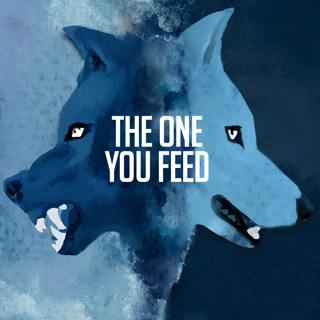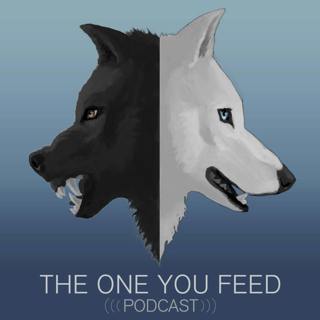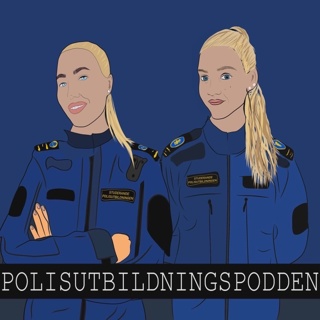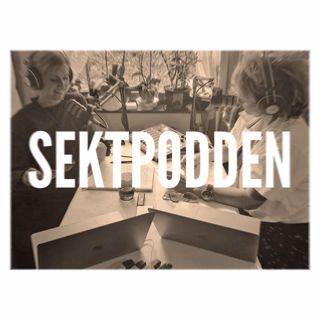
When Success Hides Suffering: Understanding High Functioning Depression with Dr. Judith Joseph
In this episode, Dr. Judith Joseph explains what happens when success hides suffering, and the importance of understanding high-functioning depression. She explores why many people who look fine on the outside are quietly suffering on the inside with something we rarely talk about: anhedonia, the loss of joy, or the loss of ability to feel pleasure. This is an important conversation that highlights this often overlooked and underplayed challenge of high-functioning depression that so many of us deal with, and most importantly, how to overcome it. Key Takeaways: Concept of high-functioning depression and its characteristics Symptoms of anhedonia and their impact on daily life Limitations of current diagnostic criteria for depression Importance of early recognition and intervention for mental health issues Biopsychosocial model for understanding mental health Role of personal agency and choice in managing mental health Strategies for emotional validation and expression The significance of reconnecting with personal values for joy Impact of technology and social connections on mental well-being Importance of celebrating small wins and planning for future joy If you enjoyed this conversation with Dr. Judith Joseph, check out these other episodes: How Identity Can Affect How You Deal with Depression with Kimi Culp Emerging Perspectives on Depression with Alex Riley Strategies for Depression with Therese Borchard For full show notes, click here! Connect with the show: Follow us on YouTube: @TheOneYouFeedPod Subscribe on Apple Podcasts or Spotify Follow us on Instagram See Privacy Policy at https://art19.com/privacy and California Privacy Notice at https://art19.com/privacy#do-not-sell-my-info. Learn more about your ad choices. Visit megaphone.fm/adchoices
12 Aug 20251h 4min

Why Ethics and Joy Belong Together with Peter Singer
In this episode, Peter Singer explains why ethics and joy belong together. He offers a moral wake-up call as he shares his now-famous “drowning child” thought experiment: if we saw a child drowning right in front of us, we’d act without hesitation. So why do we so often fail to act when suffering is farther away?Peter challenges the idea that ethics is about rigid rules or self-denial. Instead, he argues that living ethically is a path to a more joyful and meaningful life. This conversation explores how generosity, purpose, and even activities done purely for pleasure—like surfing—can all be part of a good life. Feeling overwhelmed, even by the good things in your life? Check out Overwhelm is Optional — a 4-week email course that helps you feel calmer and more grounded without needing to do less. In under 10 minutes a day, you’ll learn simple mindset shifts (called “Still Points”) you can use right inside the life you already have. Sign up here for only $29! Key Takeaways: [00:02:31] Ethical obligations in everyday life. [00:06:45] Helping those in extreme poverty. [00:10:46] Happiness and moral responsibility. [00:11:45] Moral progress in civilization. [00:16:12] Saving children from malaria. [00:21:02] Measuring happiness effectively. [00:25:02] Happiness and money connection. [00:27:43] Personal identity and change. [00:32:00] Spiritual path and personal satisfaction. [00:43:05] Enjoying non-competitive activities. If you enjoyed this conversation with Peter Singer, check out these other episodes: Purposeful Living: Strategies to Align Your Values and Actions with Victor Strecher How to Create a Life Strategy for Meaningful Change with Seth Godin For full show notes, click here! Connect with the show: Follow us on YouTube: @TheOneYouFeedPod Subscribe on Apple Podcasts or Spotify Follow us on Instagram See Privacy Policy at https://art19.com/privacy and California Privacy Notice at https://art19.com/privacy#do-not-sell-my-info. Learn more about your ad choices. Visit megaphone.fm/adchoices
8 Aug 202551min

The Path to Inexplicable Joy: How Self-Friendship Can Change Everything with Susan Piver
In this episode, Susan Piver discusses the path to inexplicable joy and how self-friendship can change everything. She shares this powerful statement, “I can’t defeat my enemies, but I can strengthen my friends,” which offers a different kind of hope that shifts our focus from fighting battles we can’t win, to caring for the people and communities closest to us. Susan shares what real power looks like, not dominance, but care, and also shares five practical ways to cultivate personal power in everyday life. This is an episode about moving from overwhelm to meaningful action. One friendship, one moment of care at a time. Feeling overwhelmed, even by the good things in your life? Check out Overwhelm is Optional — a 4-week email course that helps you feel calmer and more grounded without needing to do less. In under 10 minutes a day, you’ll learn simple mindset shifts (called “Still Points”) you can use right inside the life you already have. Sign up here for only $29! Key Takeaways: Personal empowerment and its significance in daily life. The practice of mindfulness and its role in self-awareness. Exploration of Buddhist teachings, particularly the Heart Sutra. The concept of interconnectedness and its implications for personal and communal well-being. The parable of the two wolves and its relevance to nurturing positive qualities. The importance of self-care and creating a supportive physical environment. Practical steps for cultivating personal power and confidence. The relationship between meditation and self-acceptance. The distinction between relative and absolute views in understanding existence. The role of compassion in personal growth and community connection. If you enjoyed this conversation with Susan Piver, check out these other episodes: How to Discover Your Way of Being Through the Enneagram with Susan Piver The Four Noble Truths of Love with Susan Piver (2021) Ancient Wisdom Meets Modern Life: Finding Ease and Clarity with Charlie Gilkey For full show notes, click here! Connect with the show: Follow us on YouTube: @TheOneYouFeedPod Subscribe on Apple Podcasts or Spotify Follow us on Instagram See Privacy Policy at https://art19.com/privacy and California Privacy Notice at https://art19.com/privacy#do-not-sell-my-info. Learn more about your ad choices. Visit megaphone.fm/adchoices
5 Aug 20251h 6min

Finding Meaning Through Caregiving, Loss, and Writing with Nickolas Butler
In this episode, Nickolas Butler explores finding meaning through caregiving, loss, and writing. At just 20 years old, Nick became his father’s legal guardian after a sudden brain aneurysm — a role he held for 23 years. What began as a family emergency became a long, complex journey that shaped his identity, his values, and his voice as a novelist. In this honest and moving conversation, Nick shares the emotional toll and unexpected wisdom that caregiving can bring, the power of presence, and how life’s hardest roles can also become its most transformative. Nick also discusses his latest novel, A 40 Year Kiss — a tender, hopeful story of second chances, aging, and old love — and how paying attention to real people’s stories fuels his fiction. If you’re navigating caregiving, grieving a loved one, or wondering how to stay open to creativity during hard seasons, this episode offers comfort, insight, and quiet strength. Feeling overwhelmed, even by the good things in your life? Check out Overwhelm is Optional — a 4-week email course that helps you feel calmer and more grounded without needing to do less. In under 10 minutes a day, you’ll learn simple mindset shifts (called “Still Points”) you can use right inside the life you already have. Sign up here for only $29! Key Takeaways: Caregiving and the emotional complexities involved in becoming a legal guardian at a young age. The impact of caregiving on personal identity and life experiences over a long duration. The evolution of storytelling and the importance of listening to others’ stories in writing. The contrast between Butler’s darker previous works and his latest novel, which focuses on themes of love, family, and redemption. The exploration of “old love” and the realities of long-term relationships versus contemporary portrayals of romance. The challenges and nuances of aging, wisdom, and the search for guidance in later life. The personal relationship between the writer and their craft, including the writing process and routines. The complexities of addiction and recovery, particularly in relation to alcohol use. The significance of community and shared experiences, as illustrated through sports and personal anecdotes. The importance of embracing ambiguity and the nuanced nature of human relationships in both life and art. If you enjoyed this conversation with Nickolas Butler, check out these other episodes: How to Embrace the Important Elements of Life with Nickolas Butler A Journey to Self-Discovery and Sobriety with Matthew Quick For full show notes, click here! Connect with the show: Follow us on YouTube: @TheOneYouFeedPod Subscribe on Apple Podcasts or Spotify Follow us on Instagram See Privacy Policy at https://art19.com/privacy and California Privacy Notice at https://art19.com/privacy#do-not-sell-my-info. Learn more about your ad choices. Visit megaphone.fm/adchoices
1 Aug 20251h 11min

How to Quiet the Inner Critic and Finally Get Unstuck with Michelle Chalfant
In this episode, Michelle Chalfant explores how to quiet the inner critic and finally get unstuck. She has spent 25 years developing practical tools for working with what she calls the other wolf. Michelle explains why most of us are making decisions from the emotional age of about 13. And she’ll give you the exact process for transforming triggers into growth. Her motto is “I will let nothing or no one disconnect me from myself.” and by the end of this conversation, you’ll know how to make that your reality too. Discover the six hidden saboteurs that quietly derail your best intentions—like autopilot behavior, self-doubt, and emotional escape. Download our free guide to uncover what’s getting in your way and learn simple strategies to take back control. Get it now at oneyoufeed.net/ebook. Key Takeaways: The internal struggle with inner voices, represented by the metaphor of two wolves (one good and one bad). Negative self-talk and the journey towards self-compassion and self-acceptance. Emotional age and how it influences decision-making and behavior. Techniques for regulating the nervous system and creating space for conscious responses to triggers. The importance of recognizing and working through emotional triggers as opportunities for growth. Distinguishing between healthy anger and being stuck in a triggered state. The significance of owning one’s reality and the discomfort that often accompanies this process. Developmental model of the “Three Chair Model” (Child, Adolescent, Adult) and its implications for personal growth. The five pillars that support personal transformation, including owning the good in one’s life. Practical tools and scripts for managing emotional patterns and the inner critic. If you enjoyed this conversation with Michelle Chalfant, check out these other episodes: How to Tame Your Inner Critic with Dr. Aziz Gazipura How to Overcome Overthinking with Jon Acuff How to Harness the Chatter in Your Head with Ethan Kross For full show notes, click here! Connect with the show: Follow us on YouTube: @TheOneYouFeedPod Subscribe on Apple Podcasts or Spotify Follow us on Instagram See Privacy Policy at https://art19.com/privacy and California Privacy Notice at https://art19.com/privacy#do-not-sell-my-info. Learn more about your ad choices. Visit megaphone.fm/adchoices
29 Juli 20251h 4min

From Divorce to Discovery: Nature’s Wisdom for Life’s Transitions with Lyanda Haupt
In this episode, Lyanda Haupt shares her journey from divorce to discovery and nature's wisdom for life's transitions. She challenges everything you might think you know about hope, about walking barefoot on the earth, and what it actually means to feed the good wolf. Discover the six hidden saboteurs that quietly derail your best intentions—like autopilot behavior, self-doubt, and emotional escape. Download our free guide to uncover what’s getting in your way and learn simple strategies to take back control. Get it now at oneyoufeed.net/ebook. Key Takeaways: Psychological concepts related to change, addiction, hope, disappointment, and self-efficacy. The complexities of addiction and the distinction between harmful behaviors and positive attachments. The challenges of personal change and the forces that resist it, including fear of disappointment and existential anxiety. The concept of "fear of hope" and its impact on motivation and willingness to change. The importance of social support and community in the recovery process. Critique of current addiction treatment models and the need for a more compassionate, harm reduction approach. The role of context in shaping an individual's ability to change and the limitations of individualistic approaches. The significance of incremental change and the value of small steps in personal growth. The importance of respecting resistance to change as a form of self-love and preservation. If you enjoyed this conversation with Lyanda Haupt, check out these other episodes: How to Find Joy, Wisdom, and Wonder in Nature with Mark Coleman How to Find Healing in Nature with Ralph De La Rosa For full show notes, click here! Connect with the show: Follow us on YouTube: @TheOneYouFeedPod Subscribe on Apple Podcasts or Spotify Follow us on Instagram See Privacy Policy at https://art19.com/privacy and California Privacy Notice at https://art19.com/privacy#do-not-sell-my-info. Learn more about your ad choices. Visit megaphone.fm/adchoices
25 Juli 20251h 11min

Why We Resist Change (and What to Do About It) with Ross Ellenhorn
In this episode, Ross Ellenhorn explores the complexities of why we resist change and what to do about it. As Ross explains in this conversation, “staying the same protects you from the insult of small steps.” He shows us why these tiny steps can sometimes feel insulting and demoralizing. Ross also delves into the fear of raising expectations, the pain of disappointment, and why hope itself can feel threatening Discover the six hidden saboteurs that quietly derail your best intentions—like autopilot behavior, self-doubt, and emotional escape. Download our free guide to uncover what’s getting in your way and learn simple strategies to take back control. Get it now at oneyoufeed.net/ebook. Key Takeaways: Psychological concepts related to change, addiction, hope, disappointment, and self-efficacy. The complexities of addiction and the distinction between harmful behaviors and positive attachments. The challenges of personal change and the forces that resist it, including fear of disappointment and existential anxiety. The concept of “fear of hope” and its impact on motivation and willingness to change. The importance of social support and community in the recovery process. Critique of current addiction treatment models and the need for a more compassionate, harm reduction approach. The role of context in shaping an individual’s ability to change and the limitations of individualistic approaches. The significance of incremental change and the value of small steps in personal growth. The importance of respecting resistance to change as a form of self-love and preservation. If you enjoyed this conversation with Ross Ellenhorn, check out these other episodes: How to Integrate Behavior Change with Your Values with Spencer Greenberg Tiny Habits for Behavior Change with BJ Fogg Behavior Change with Dr. John Norcross For full show notes, click here! Connect with the show: Follow us on YouTube: @TheOneYouFeedPod Subscribe on Apple Podcasts or Spotify Follow us on Instagram See Privacy Policy at https://art19.com/privacy and California Privacy Notice at https://art19.com/privacy#do-not-sell-my-info. Learn more about your ad choices. Visit megaphone.fm/adchoices
22 Juli 20251h

How to Create Change at Work Without Losing Yourself with Melody Wilding
In this episode, Melody Wilding discusses how to create change at work without losing yourself. She challenges the idea that you’re powerless at work, even in tough cultures. If you’ve ever wondered how to navigate office politics, or if there’s a way to work with integrity even when you’re not in charge, this conversation will give you both practical tools and hope. Get Weekly Bites of Wisdom delivered to your inbox. Every Wednesday, you’ll receive a short, practical email that distills the big ideas from different episodes on topics like mental health, relationships, anxiety, and purpose – into bite-sized practices you can use right away. It’s free, takes about a minute to read. You’ll also receive a Weekend Podcast playlist every Friday to ensure you don’t miss an episode! Join now at oneyoufeed.net/newsletter. Key Takeaways: The internal and cultural struggle between hope and despair in the context of global crises. The concept of “radical hope” as a resilient form of hope amidst harsh realities. The inadequacy of typical positivity in addressing complex real-world problems. The need for a new “rational mysticism” suitable for the 21st century. The dangers of failing to establish a stable, shared sense of meaning in society. The critique of hyper-individualistic and consumer-driven culture in relation to existential risks. The historical evolution of existential risk narratives and their implications for modern society. The importance of community and connection in fostering healing and growth. The challenges of creating secular communities that provide meaningful structure and belonging. The potential for a revived Western rational mysticism to address contemporary spiritual needs and crises. If you enjoyed this conversation with Melody Wilding, check out these other episodes: How to Simplify Your Life and Find More Fulfillment in Your Work with John Kaag How to Recognize the Hidden Signs of Burnout with Leah Weiss For full show notes, click here! Connect with the show: Follow us on YouTube: @TheOneYouFeedPod Subscribe on Apple Podcasts or Spotify Follow us on Instagram See Privacy Policy at https://art19.com/privacy and California Privacy Notice at https://art19.com/privacy#do-not-sell-my-info. Learn more about your ad choices. Visit megaphone.fm/adchoices
18 Juli 20251h 9min






















